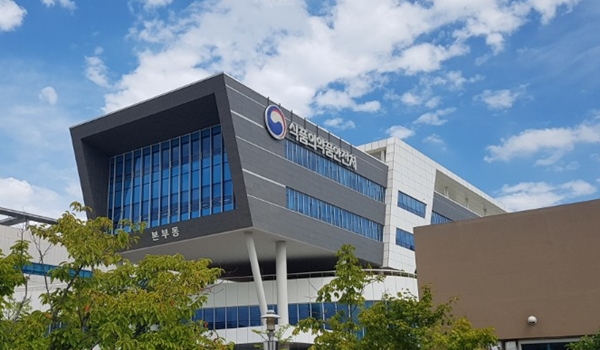The Ministry of Food and Drug Safety (MFDS) is examining whether to urgently introduce anakinra (Kineret in trademark name), an interleukin-1 (IL-1) inhibitor, for treating severe immune complications associated with CAR-T (chimeric antigen receptor-T cell) therapy.
The ministry's move follows a request for urgent introduction of anakinra submitted by the Korean Society of Hematology in May. The government confirmed that its drug safety bureau, which received the complaint, has transferred it to the biopharmaceutical policy division for an internal review.

Demand for anakinra surges after CAR-T therapy reimbursement
CAR-T cell therapy is an advanced, precision immunotherapy that genetically engineers a patient's T cells to target and attack cancer cells. It is mainly used for incurable blood cancers, such as acute lymphocytic leukemia, diffuse large B-cell lymphoma, and multiple myeloma.
In Korea, the treatment is expensive, costing between 400 million won ($294,920) and 500 million won, but it is covered by health insurance, easing the financial burden on patients. However, some adjuvant treatments for severe immune-related adverse events that may occur after treatment are not covered by insurance.
Cytokine release syndrome (CRS), immune cell-associated neurotoxicity syndrome (ICANS), and immune effector cell-associated hemophagocytic lymphohistiocytosis-like syndrome (IEC-HLS) are common and potentially life-threatening complications that can occur following CAR-T therapy. While tocilizumab (an IL-6 inhibitor) or high-dose steroids are typically used as first-line treatments, anakinra is an important treatment alternative for patients who do not respond to these.
Discretionary reimbursement of anakinra, a persistent challenge for frontline clinicians
Anakinra, an interleukin-1 (IL-1) receptor antagonist manufactured by Sobi, Sweden, is licensed in the United States (FDA), Europe (EMA), and Japan (PMDA) for treating rheumatoid arthritis, cryopyrin-associated periodic syndrome (CAPS), familial Mediterranean fever (FMF), and Still's disease.
Notably, the European GoCART Coalition's 2025 CAR-T Handbook strongly recommends high-dose anakinra for complications, such as CRS and ICANS, and guidelines for IEC-HLS patients include the combination of steroids and anakinra.
A retrospective analysis (Gazeau N et al, 2023) reported a zero percent treatment-related mortality rate and a 77 percent overall response rate (ORR) within 28 days with anakinra in 43 patients with Grade 2 or higher immune complications after CAR-T therapy. This study is cited as the primary evidence for the safety and efficacy of anakinra.
In Korea, however, Anakinra was once licensed but withdrawn from general distribution due to the manufacturer's withdrawal. It is available as an “urgently needed drug” through the Korea Orphan and Essential Drug Center. Still, its use for treating CAR-T complications is limited due to its off-label indication.
Some tertiary hospitals are using anakinra on a limited basis for CAR-T-related immune complications with institutional review board (IRB) approval.
However, this off-label use, though permitted under IRB oversight, places legal responsibility on physicians, complicating broader clinical adoption.
In April, the Korean Society of Hematology said in a report to the e-People, an online national petition site, "Currently, medical professionals have no choice but to use anakinra unofficially at the risk of illegal practice to save patients' lives. It violates the basic principle of guaranteeing the right to life and requires an immediate overhaul of the system."
On May 19, the society formally submitted a “Request for Urgent Introduction of Anakinra” to the MFDS. The request detailed the drug's product information, licensing status in major countries, supporting literature, and estimated annual demand (within 100 patients).
Hematology society, citing no alternative to anakinra, calls for treatment access
Emphasizing that there are currently no drugs with similar mechanisms that can replace anakinra in Korea, the Korean Society of Hematology said, “Early immunomodulation is critical for saving the lives of patients with severe immune complications."
"While CAR-T therapy is widely available through public subsidies, follow-up treatment for severe side effects remains outside the system, a contradictory situation," it said. "The official introduction of anakinra is an essential task of public health policy to ensure patients' right to life and expand access to treatment."

